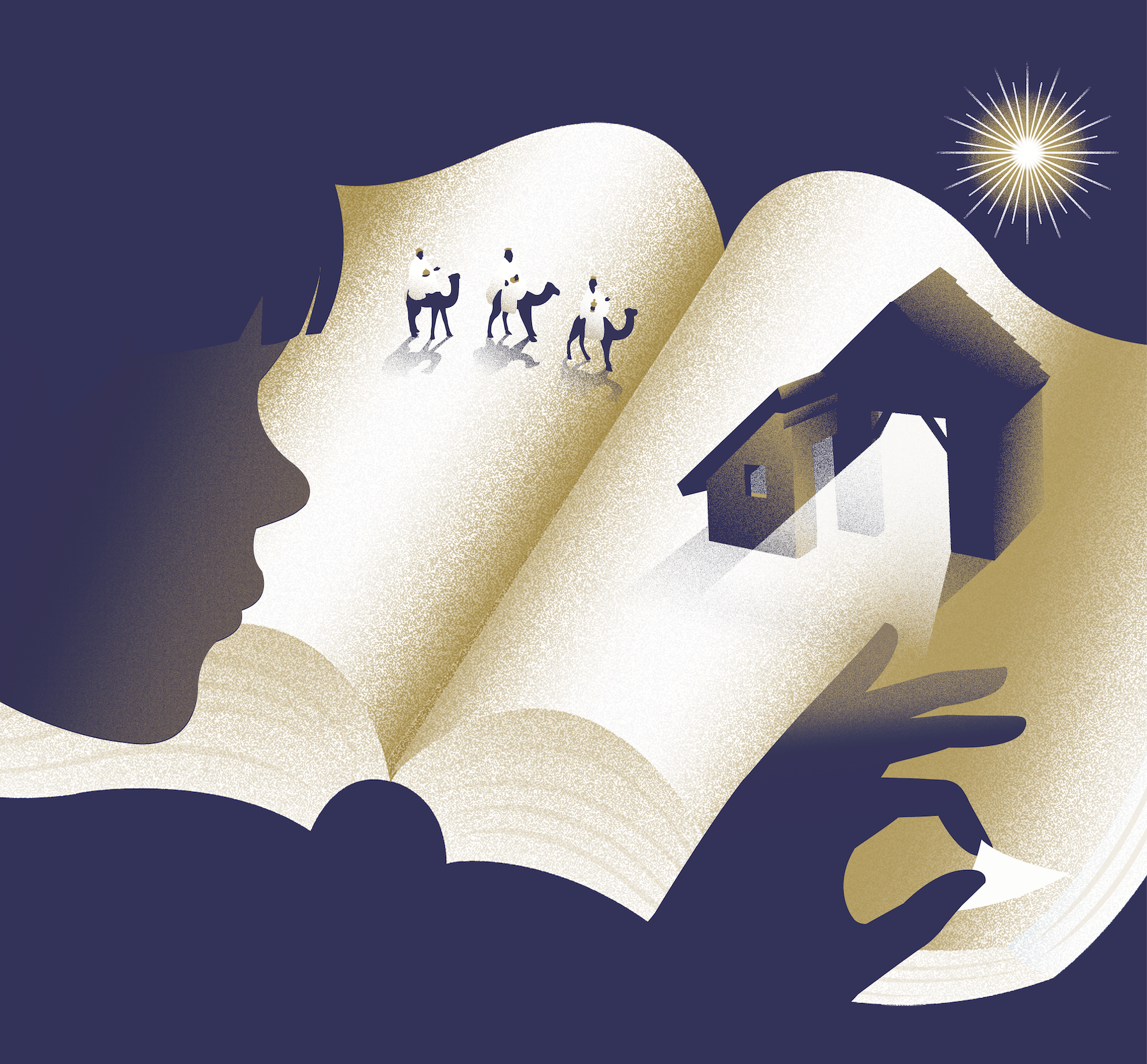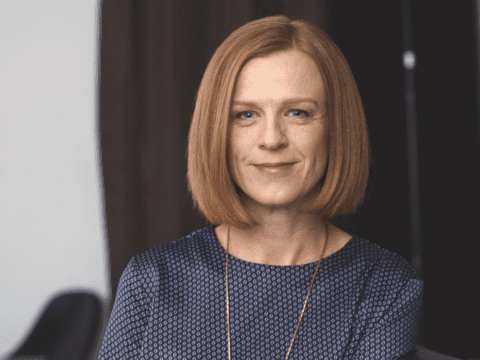Some of my greatest memories from childhood include being curled up on an adult’s knee, listening to them tell a story. Sometimes it was my mom or my dad; sometimes it was a grandparent; sometimes it was another adult in the community who was caring for me. While there were a good number of times the story was read from a book, the best stories were the ones that came from their hearts.
Everyone had their own style. Grandpa Bott told stories with photographic precision. Papa Winger delivered fantastic tales about fictional creatures. Nana’s stories often had a lesson or two built into them. Mom’s sometimes wove me and those around me in as characters. And my dad’s stories could tug my heartstrings into feeling joy, wonder, sadness and hope — all at once.
You may unsubscribe from any of our newsletters at any time.
Then there were the adults in my circle who loved books of every kind, people who read me stories written by others, making them come alive with their reading, and helping me learn to make sense of the squiggles on the page until I could understand for myself what they meant. Learning to read opened my world to the gift of even more storytellers — a universe of experiences, wonders, fears and dreams.
I think my love of stories and storytelling is part of the reason I enjoy scripture so much. The Bible is a library containing thousands of years’ worth of stories about people’s relationships with each other and with God. Some of it is history, some of it is story. It has been edited and re-edited, with stories from different cultures coming together. It has epic adventures — including parts that would give Game of Thrones a run for its money in terms of sex and dynastic intrigue. It has genealogies that tell a story just by listing names. It has letters to wayward congregations, songs of grief and so much more. All of these stories have been collected by various individuals and groups of people over millennia. Books were added in, others were taken out, and canons were formed as various groups came to accept different collections of books as the “best” to help people understand who God is and who we are in relation to God.
What brings me back to the Bible over and over is the sense that I can curl up on the knee of these storytellers and listen to them as they share what was important to them: their experience of the presence of God. Exploring those stories is a great adventure — even before you add in the joys of translating the variety of languages they were written down in, some with words we’ve lost the meaning of, or cultural concepts that don’t always map onto our contemporary world views.
More on Broadview: The complex history of the Huron Carol
A story well told communicates far more than just the facts. It gives the listener the opportunity to feel what the characters were feeling. Think about Mary’s shock to find a messenger of God standing in her living room. Our hearts race with the shepherds who wake up from their dozing to have an angel shouting at them, “Don’t be afraid.” We can feel Mary’s weariness as she travels, kilometre after kilometre, ready to have this baby.
Every time the Christmas story is told, different parts are emphasized, and a bit of the storyteller becomes part of the story. Even when the text stays the same, the story itself is changed by the telling. I have to wonder if that’s part of what makes story so helpful for me in understanding God’s presence in the world and in my life. There’s a presence that is always there, but what I experience is always changing.
The attempt to communicate our experience of the divine through narrative is one of the reasons I love Christmas. Every year around this time, we start to tell the story of the birth of Jesus. Often, we’ll act it out in a Christmas pageant. We synthesize the narratives from the book of Luke and the book of Matthew, bringing together the parts that are only in one or the other with the parts that are common to both, so that we can tell the story again.
As we retell the stories of Jesus’ birth, sometimes we add our own interpretations, or we highlight one element of the story because it is particularly relevant to our lives, right here and right now. For example, we may want to amplify the echoes of Moses’ life that the first Jewish audiences would have heard in Matthew’s version, reminding ourselves of God’s presence in the midst of imperial oppression.
Or we may want to focus on the sense of epic divinity that the first gentile audiences would have recognized right away in the account that is shared in the book of Luke. Perhaps there is something in that framing that we need right now, because what is happening in our time seems to require an epic response.
A story well told communicates far more than just the facts. It gives the listener the opportunity to feel what the characters were feeling.
Or there may be something important for us to hear as we bring together both of these stories, which speak of “God With Us” in a Middle Eastern baby born of poor parents, running for their lives from their own government, all under the almost overwhelming might of the world’s political powers. No matter where we find ourselves, there are enough riches in the Christmas story to provide guidance and wisdom.
The stories are important. Telling the stories again and again is important. Helping ourselves, and others, to hear one of the messages that the Gospel authors wanted to get across — “Hey! This child has something to say! Listen to him!” — is important. Even in a world like ours, one that is distant in time and space from the world Jesus was born into, the stories are important.
That means the stories of Jesus’ life need to be shared. I’m not only talking about the Nativity, but also the parables Jesus shared and the stories of how he challenged the powers that be. The stories of how he lifted people up, the “aha!” moments, the miracles and the quiet times, the things that make sense and the stories that confuse us.
And, like the moments I remember from my childhood, the best stories are the ones that are told from our hearts. We might not get all the details perfectly, but the people listening to the story we’re sharing will get the most important part: how the story has changed our story. How Jesus’ life has intertwined with our life.
Perhaps especially in a world like ours, where fear about global concerns can be paralyzing, we need to share Mary’s song in response to the angel’s call, or shout out the story of the angel’s words to the herders, “Don’t be afraid! I bring you good news, joyful news for all people! For unto you is born today, in David’s city, a child; one who saves.”
This Christmas, I hope you’ll read the stories of Jesus’ birth, and then, in your own words and your own way, out of your heart, tell them again. I hope you’ll meet the angels and the shepherds, the wise ones and Herod. I hope you’ll meet Joseph in his dreaming, and Mary in her power. I hope you’ll meet Emmanuel, God With Us, in a baby named Jesus. And I hope, that in the meeting you’ll tell the stories again, so others can meet them, too.
There are gifts in the stories, just waiting to be opened and shared.
This story first appeared in the December 2019 issue of Broadview with the title “Narrating the nativity.”
Broadview is an award-winning progressive Christian magazine, featuring stories about spirituality, justice and ethical living. For more of our content, subscribe to the magazine today.













